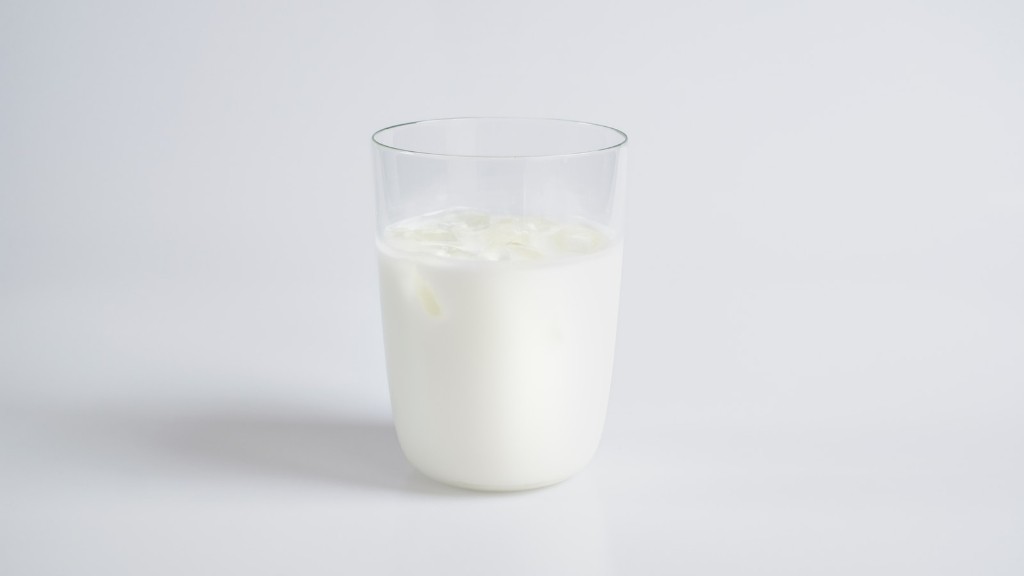Benefits of Eating Philadelphia Cream Cheese while Pregnant
Philadelphia cream cheese is made with pasteurised milk, rich in calcium and proteins, providing pregnant women with essential nutrition for mother and baby during the vital nine months of pregnancy. Regular consumption of the cream cheese is beneficial for the health of the expectant mother and provides essential pregnancy nutrition, such as vitamins, folic acid, and other minerals that are required for the growth and development of the foetus. While there are many types of cream cheese available, Philadelphia cream cheese is a healthier choice for pregnant women due to its lower levels of fat and cholesterol, which provide not only the necessary nutrition, but also maintain the balance of weight during the pregnancy. This means that pregnant women who consume Philadelphia cream cheese do not put on excessive weight, but enjoy a healthy level of nutrition.
Philadelphia cream cheese is rich in lactose and protein, and the recommended amount for pregnant women is five grams per two tablespoons, or two teaspoons. It is best to eat small amounts of cream cheese with other food items such as crackers, vegetables, fruit or salads to ensure that the baby gets sufficient nutrition from the foods and the cream cheese. Besides providing essential nutrition, Philadelphia cream cheese can also be helpful in cravings as it is tasty, so pregnant women can have the cream cheese with crackers or bagels, or on toast to satisfy their appetites.
Risks of Eating Philadelphia Cream Cheese when Pregnant
Though Philadelphia cream cheese is a healthier choice as it has lower fat and cholesterol content compared to other cream cheese varieties, it is important to consume it in moderation. Excess consumption can lead to accumulation of fats and calorie intake, leading to weight gain and other health risks. Since it is made of pasteurised milk, the cream cheese can also harbour bacteria that can cause food poisoning and other infections. Therefore, pregnant women must ensure that the cream cheese they are consuming is fresh and not past its expiry date.
Philadelphia cream cheese can also increase the salt consumption in the body as it contains sodium, so it is best to limit the intake of the cream cheese and accompanying food items to not more than two servings per day. Moreover, some types of cream cheese include ingredients such as chocolate, onion, garlic or pepper, which can be harmful for pregnant women, so they must read the label carefully before consuming and only purchase Philadelphia cream cheese from trusted sources.
Alternatives to Philadelphia Cream Cheese when Pregnant
For pregnant women looking for a healthier alternative to Philadelphia cream cheese, spreadable cheese or cottage cheese can be a better option. Spreadable cheese is a low-fat, low-sodium cheese that does not contain any additives or preservatives, and pregnant women can spread it over crackers, bread, or toast, or mix it with other ingredients such as vegetables or tuna as an alternative to Philadelphia cream cheese. For a higher source of protein, cottage cheese can be the ideal choice as it is milder in flavour and contains around eight percent fat, providing enough nutrition to pregnant women.
Soy-based or almond-based cream cheese can also be a healthier alternative to Philadelphia cream cheese as they are lower in fat and provide similar creamy texture. Lastly, plain Greek yogurt can provide the same creamy texture without the calories or fat from cream cheese as it is high in protein and calcium and low in fat. Greek yogurt can be added to smoothies, oatmeal, or salads for a healthier choice of pregnancy snack.
Philly Cream Cheese while Breastfeeding
Philadelphia cream cheese is also suitable for consumption while breastfeeding as it is made of pasteurized milk that is low in fat and does not contain any preservatives or artificial colouring. The calcium in the cream cheese helps to replenish the calcium lost during breastfeeding, as nursing mothers need to maintain calcium levels. This also helps to replenish the iron levels in the mother’s body, which can be lost during the process of breastfeeding. However, it is important to be aware of the amount of cream cheese being consumed, as excess intake can lead to weight gain, and mothers should not consume more than two servings a day.
It is important that mothers follow the instructions of their healthcare provider when consuming any kind of dairy food while breastfeeding. However, Philadelphia cream cheese can provide the essential nutritional needs for nursing mothers, and it is quite safe to consume, as long as the cream cheese is fresh and not past its use by date.
How to Store Philly Cream Cheese
Philadelphia cream cheese should be stored in the fridge, between 0 and 4 degrees Celsius, and should be consumed within two weeks of purchase. It should also not be left out of the fridge for more than two hours, as this can cause the cream cheese to spoil over time. Furthermore, once opened, the cream cheese should be transferred to an airtight container and consume within two weeks.
Additionally, Philadelphia cream cheese should not be consumed if it is mouldy, smells unusual, or the consistency has changed. In such cases, it is best throw it out, as consuming such cream cheese can lead to infections that can harm both the expectant mother and the developing baby.
How to Include Philly Cream Cheese in a Pregnancy Diet
Philadelphia cream cheese can be included in the diet of an expectant mother without any worries, as long as it is consumed in moderation. It can be included in breakfast as a spread with some vitamins and minerals, and added to salads and snacks to enhance the taste and provide essential nutrition. Moreover, some recipes use cream cheese to create high protein dishes, such as cream cheese omelettes or cream cheese pasta, as well as desserts like cheesecake and mousse.
Overall, Philadelphia cream cheese is a nutritious choice for pregnant women when consumed in moderation and with other food choices. Moreover, nursing mothers can also add Philadelphia cream cheese to their meal plans when the doctor gives the green light. Philadelphia cream cheese can provide essential nutrition during pregnancy and breastfeeding when consumed in the right way.
Effects on baby
Philadelphia cream cheese is not known to have any direct effect on the baby unless it is consumed excessively or if the cream cheese has gone bad. The nutrients present in the cream cheese are essential for pregnancy, as it is rich in proteins, calcium, and lactose. Regular consumption of cream cheese helps to provide the essential nutrients for the development of the baby in the womb, and also helps to maintain the mother’s health. The fats and cholesterol in the cream cheese are also at a low level, so it does not cause any harm to the baby unless consumed in huge amounts.
In general, Philadelphia cream cheese is considered to be safe for consumption during pregnancy, as long it is consumed in moderation and is not past its use by date. However, when in doubt, it is always best to consult a healthcare professional before consuming Philadelphia cream cheese during pregnancy or while breastfeeding.
Allergies
Although Philadelphia cream cheese does not contain any common allergens, there is a slight chance of it causing an allergic reaction if the expectant mother has a severe intolerance to lactose, the main component in the cream cheese. Therefore, pregnant women who are allergic to lactose must avoid consuming Philadelphia cream cheese, as it can cause an allergic reaction and potentially be harmful if consumed.
In the cases of lactose intolerance, pregnant women can try consuming low-fat plain yogurt which is lower in lactose compared to the cream cheese. Also, if an expectant mother is experiencing any allergic reactions from consuming Philadelphia cream cheese, it is best to seek medical advice to ensure there are no further health risks to the mother and baby.
Tips for Healthy Philadelphia Cream Cheese Consumption during Pregnancy
While Philadelphia cream cheese can be a healthier option for pregnant women if consumed in moderation, it is important to follow some simple tips for a healthier diet:
- Ensure that the cream cheese is fresh and not past its use by date.
- Read the nutrition label for ingredients.
- Store cream cheese in an airtight container.
- Eat small portions throughout the day.
- Never eat cream cheese without additional food items.




